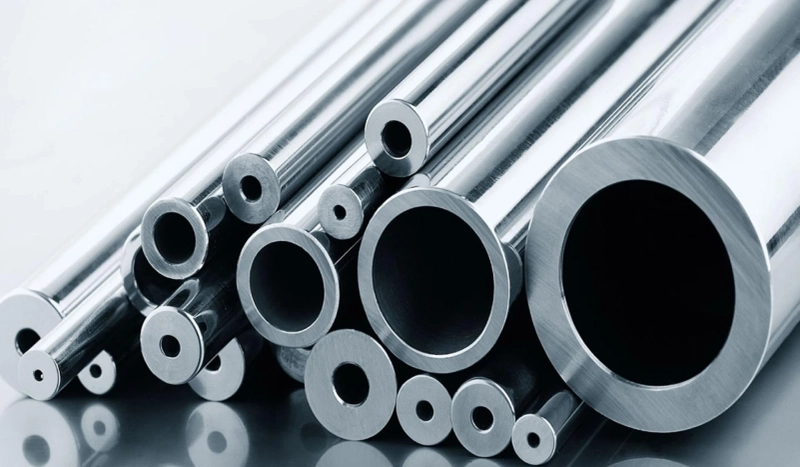What do you mean by Alloy Steel?
Alloy, as the name implies, is a metal alloy composed of several metals. Certain properties exist in Alloy Steel that is not found in many other metals or alloys. Because of its low cost, wide availability, ease of fabrication, and superior mechanical properties, alloy steel is an important material in many industries. Manganese, Nickel, Copper, Silicon, Titanium, Chromium, and Aluminum are the metals that are combined to form an Alloy Steel in a specific proportion.
The proportions of these metals are important because each metal in a specific ratio contributes to the Alloy Steel property. The percentages of each metal are as follows: Chromium- 0.5- 18%, Manganese- 0.25-13%, Nickel- 2-20%, Copper- 0.1-0.4%, Aluminum- 0.95-1.30%, and so on. Alloy Steel is characterized by high strength, hardness, toughness, wear resistance, corrosion resistance, hardenability, and hot hardness.
What is Alloy 20 Pipe?
The Pipe is a piping instrument used to transport water, gas, or liquid from one location to another or a refinery. There are two types of pipes: seamless and welded. As the name implies, the welded pipe is properly welded longitudinally. Welded pipe is constructed from coils that have been formed into circular shapes and welded. The seamless pipe is initially a long solid piece of metal that is pierced through a mandrel, resulting in a pipe that is rolled and cooled for an extended period to keep it intact.
Alloy 20 is a grade of alloy with similar properties but minor differences in chemical composition. Nickel 32-38 percent, Chromium 19-21 percent, Carbon 0.06 percent, Copper 4 percent, Molybdenum 3 percent, Manganese 2 percent, and so on make up Alloy 20. Alloy 20 has a tensile strength of 620 MPa and a yield strength of 300 MPa and an elongation of 41 percent. The Alloy 20 pipe has the advantage of being durable enough to withstand any conditions or environment. Because of the Nickel and Molybdenum content, it is rust and corrosion resistant. The pipes have precise edges and shapes, making them simple to install.
Applications of Alloy 20 Pipes
The most common applications for alloy 20 pipe are water supply, construction, utilities, and sewage. When it comes to pipes, people's first choice is alloy 20. Because of its strength and durability, it is widely used. Because Alloy 20 pipes do not react to any chemical or substance, they are commonly used in the chemical and oil and gas industries to transport products from one location to another. Alloy 20 must be annealed for 30 minutes per inch of thickness at temperatures ranging from 1725°F to 1850°F. Heat the alloy to 2100°F to reduce its hardness, but this may jeopardize its stability.
Alloy 20 can be formed using traditional cold-work and hot-work methods. It is necessary to carefully control the temperature of hot forged material between 2100°F and 2250°F. It also prevents the material from cooling below 1800 degrees Fahrenheit before being forged. Anneal the materials after hot working by heating them to 1725°F or 1850°F for at least 30 minutes per inch of thickness, then quenching them in water.
Food and beverage industries rely heavily on Alloy 20 for its ability to prevent leakage and contamination. This industry also uses Alloy 20 vessels for storing products, but all of them must be washed regularly because sanitation is a top priority in the food and beverage and medical device industries. Textile Machinery, Chemicals, Fertilizers, Dairy and Food Processing, Power Plants, Pesticides, Construction, Modern Architecture, Pharmaceuticals, Sugar, Oil, and Gas Processing are some of the major industries that use Alloy 20 pipes regularly.



